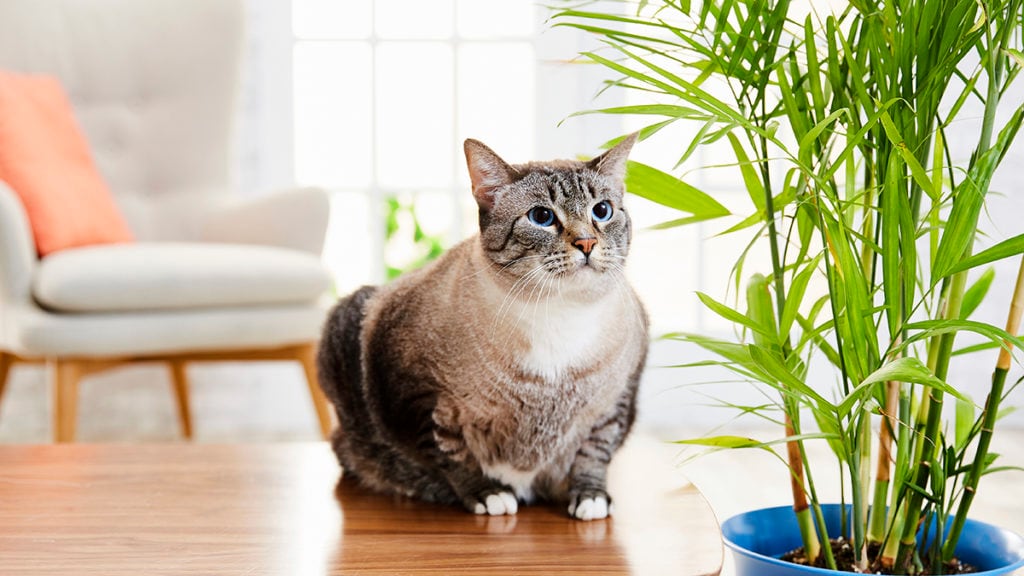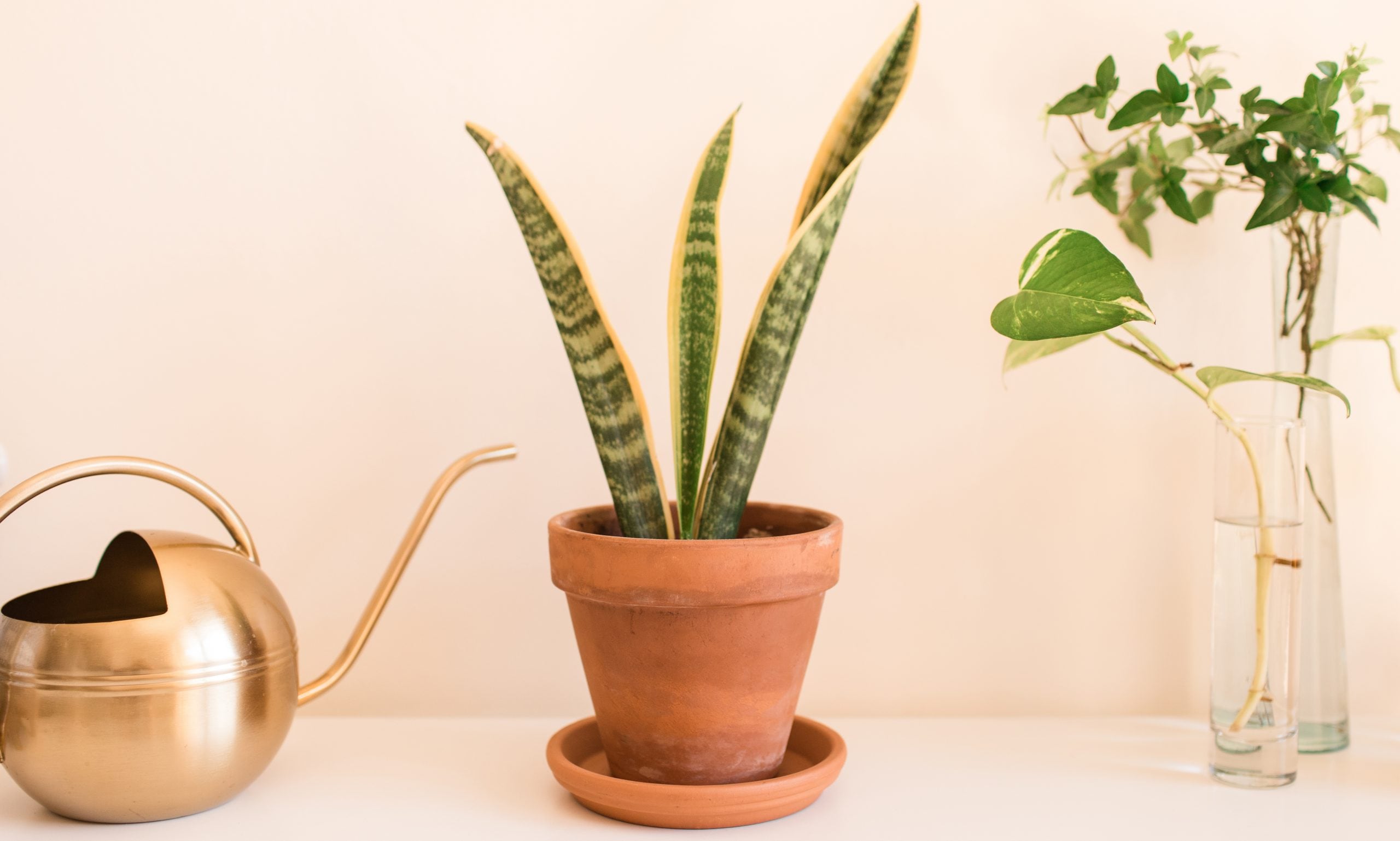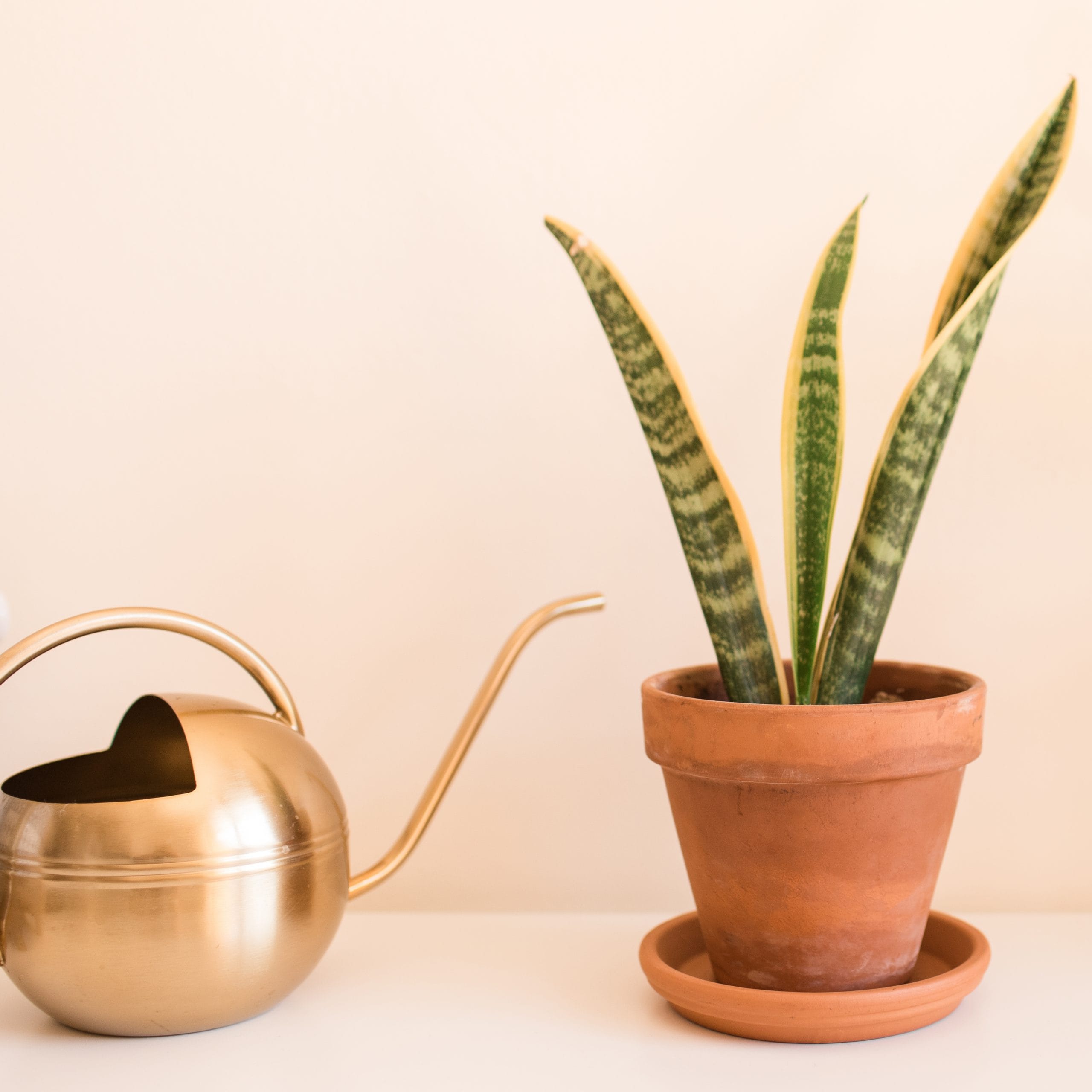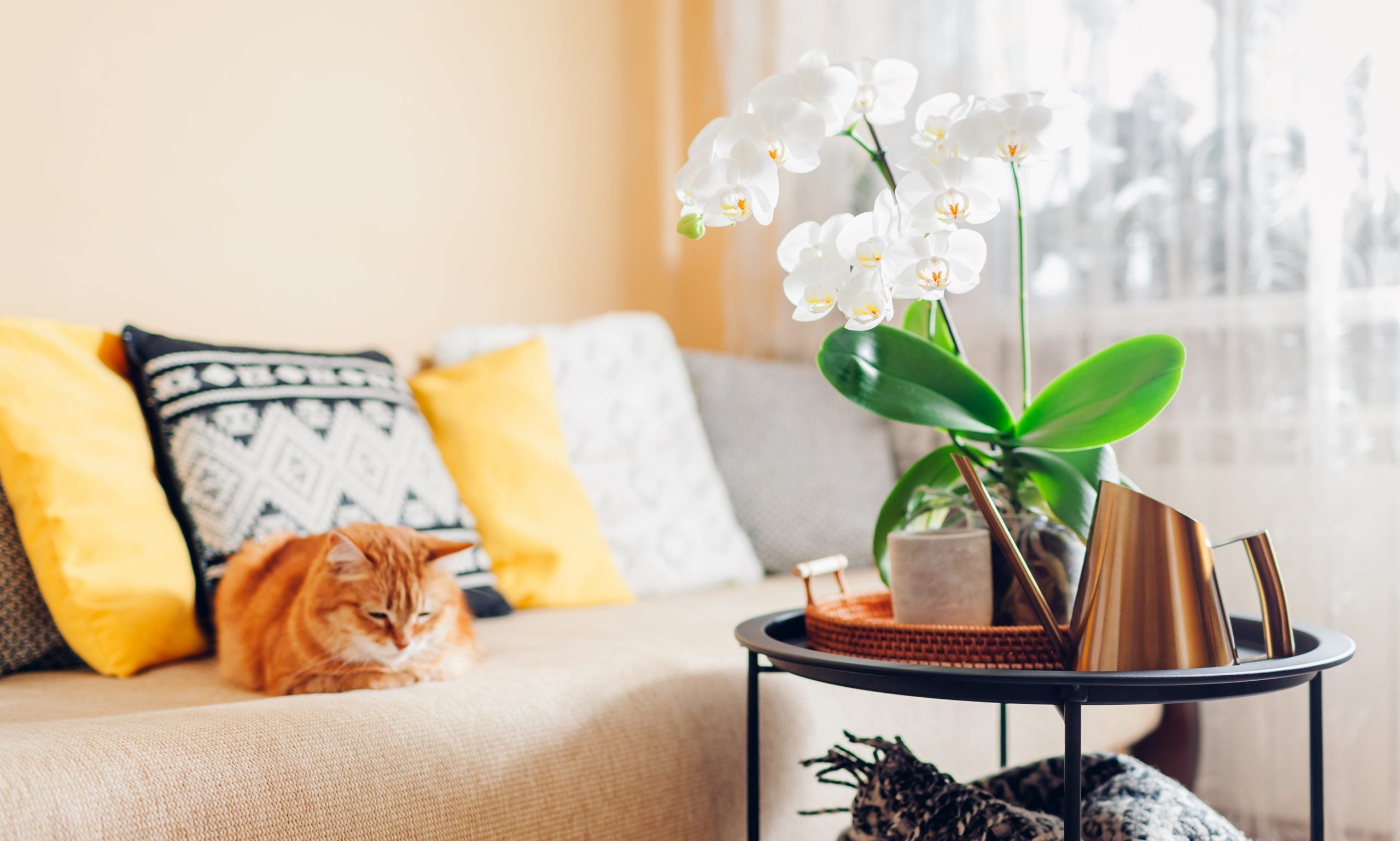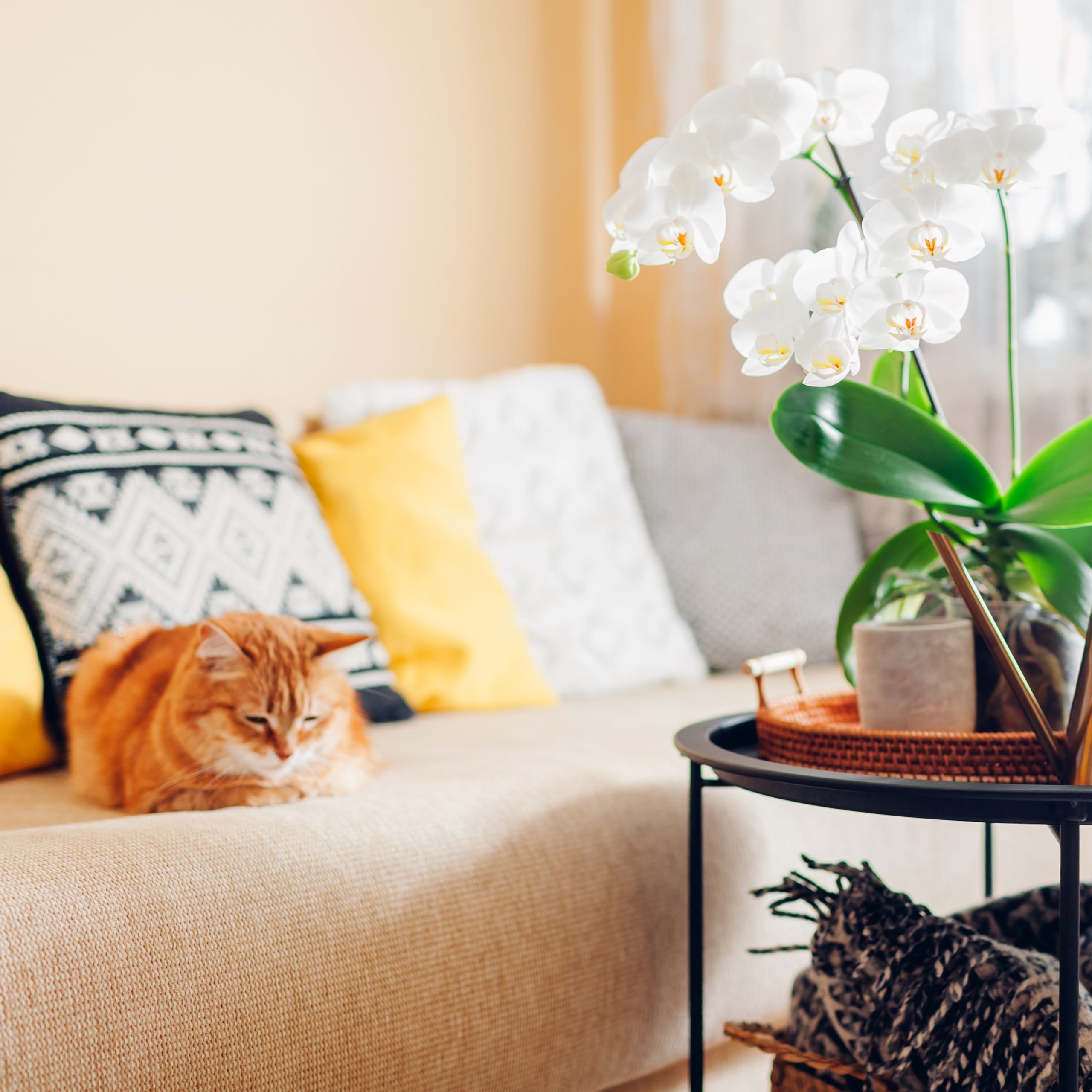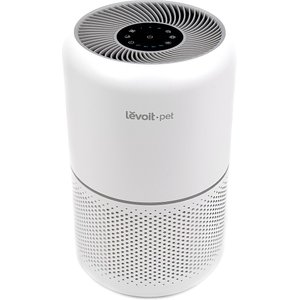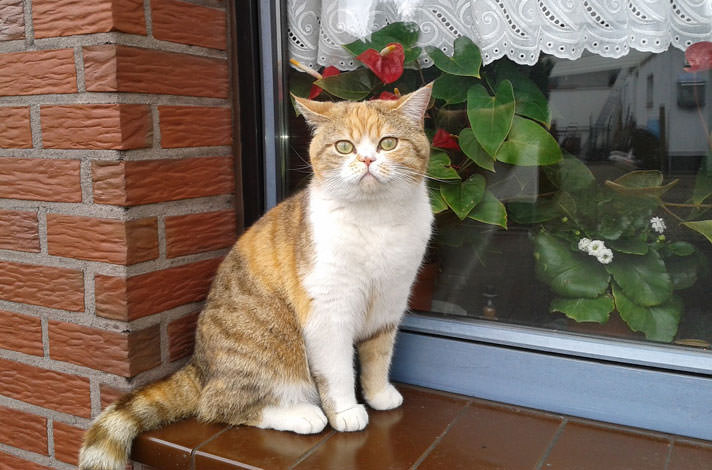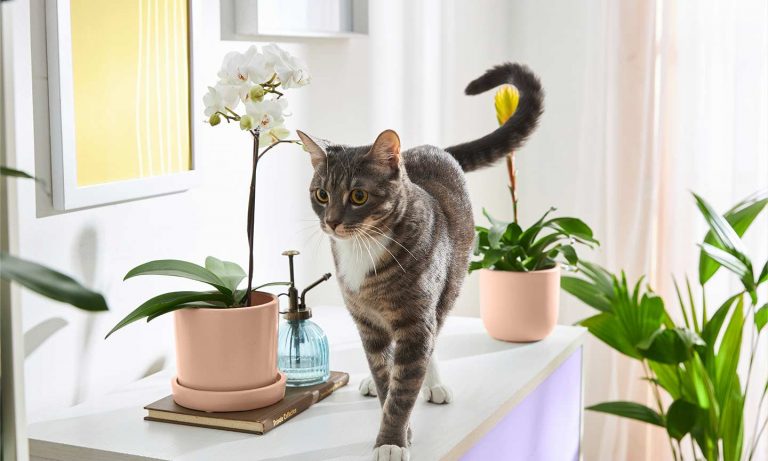Because we and our pets spend much of our time indoors, having air-purifying plants in our homes makes sense. But not all plants are pet friendly. Some are toxic and can cause illness, or worse, if ingested. As long as you know which air-purifying plants are safe for your cat or your dog, and which ones you should avoid, you and your pet can breathe clean and easy.
We consulted a vet expert and a plant expert to compile this list of air-purifying plants safe for cats and dogs.
Bamboo Palm
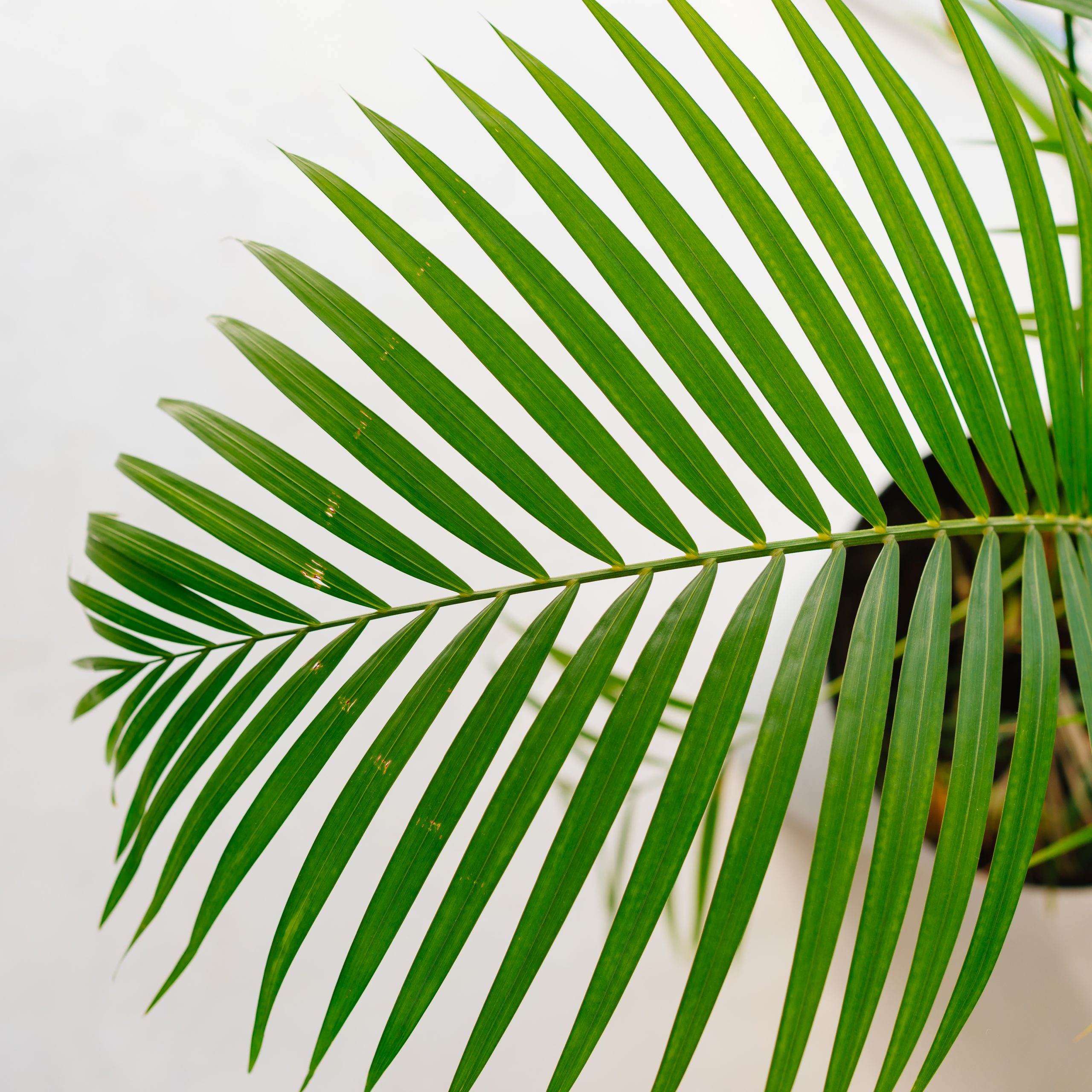
Also known as the parlor palm, the bamboo palm (Chamaedorea seifrizii) is a hardy, low-maintenance air purifying plant with a high shade tolerance.
Its waxy green leaves might be tempting for a plant-partaking pet, and that’s perfectly fine. Bamboo palm plants are safe for dogs and cats, says Angelica Dimock, DVM, a veterinarian at Animal Humane Society in St. Paul, Minnesota.
The bamboo palm will happily and safely share the sunny window seat with your cat or provide the perfect canopy for your dog’s bed.
Spider Plant
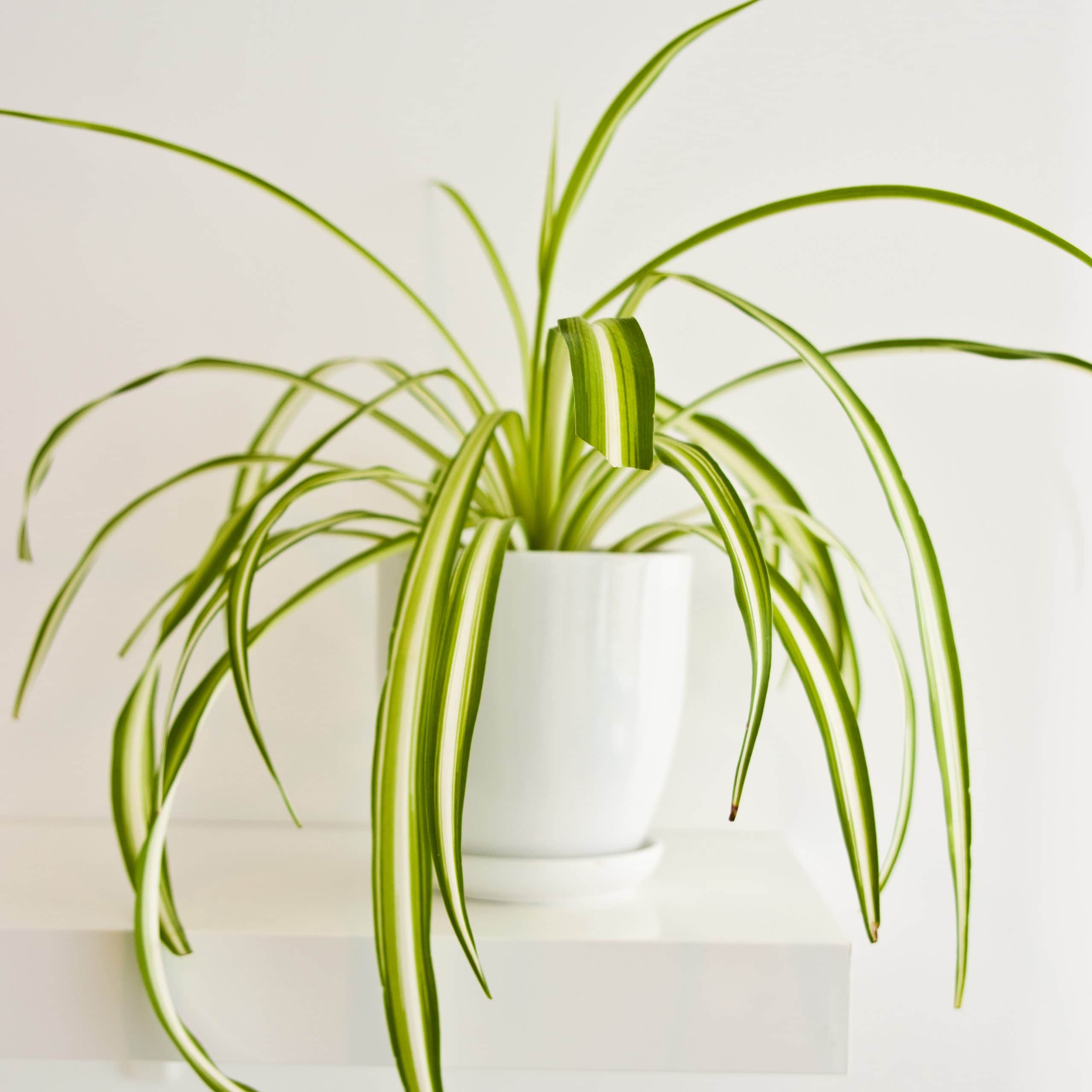
The humble spider plant, also known as Chlorophytum comosum, is another air purifying plant that is safe for pets, Dr. Dimock says. And bonus? It’s easy to maintain and makes a great beginner’s plant. Believe it or not, it actually thrives on neglect.
The spider plant prefers bright-to-moderate indirect light and will sprout clusters of small white flowers.
Place it in a hanging basket or on a shelf near where you and your pet nap so you both can take in clean air while you snooze.
Prayer Plant
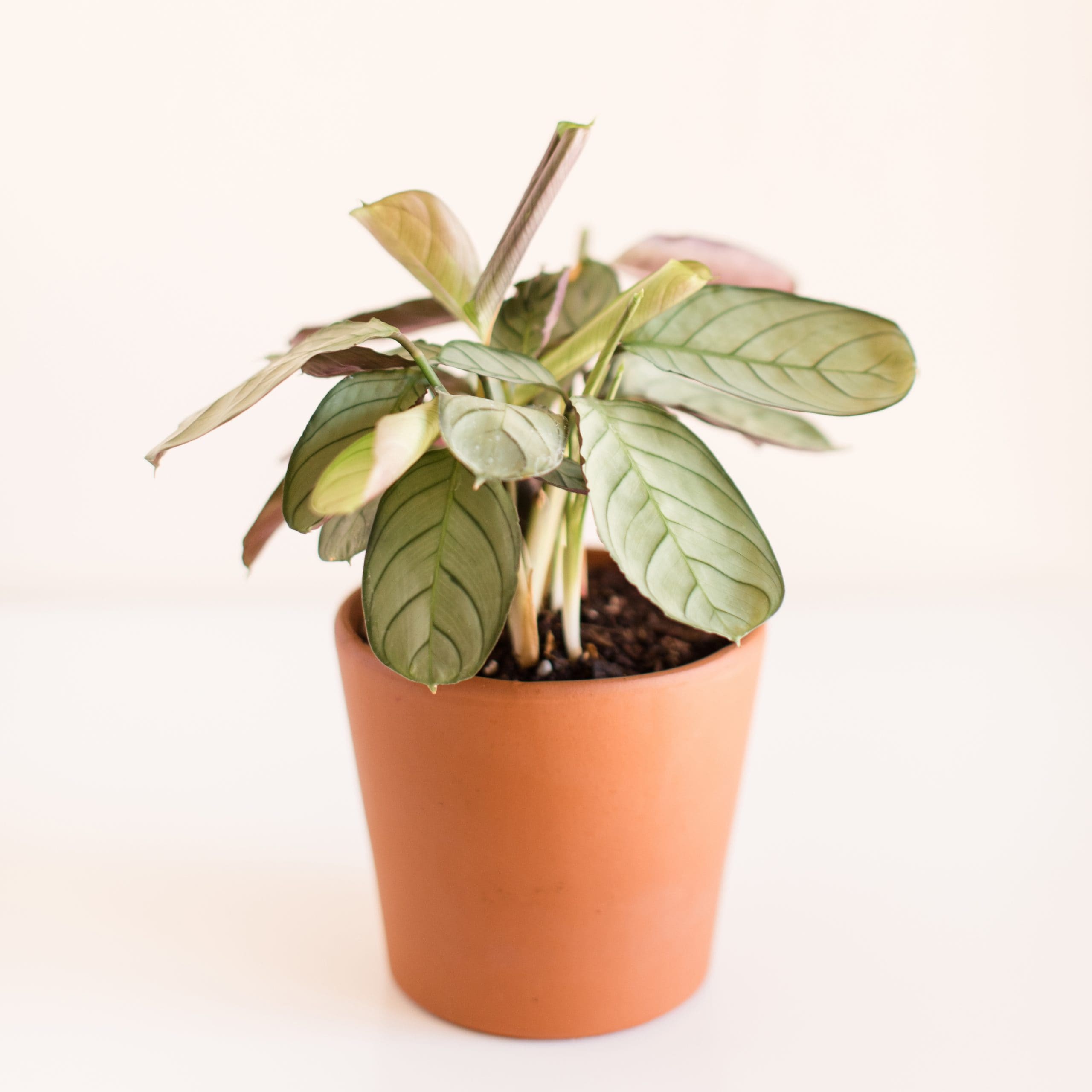
The prayer plant, or Maranta leuconeura, gets its name from the way its green-and-yellow variegated leaves fold together like hands at night, similar to how your dog or cat curls up at bedtime.
Dr. Dimock notes they’re non-toxic plants and they prefer little sunlight, making prayer plants an ideal way to purify the air in your pet’s favorite laundry room or basement hideaway.
Boston Fern
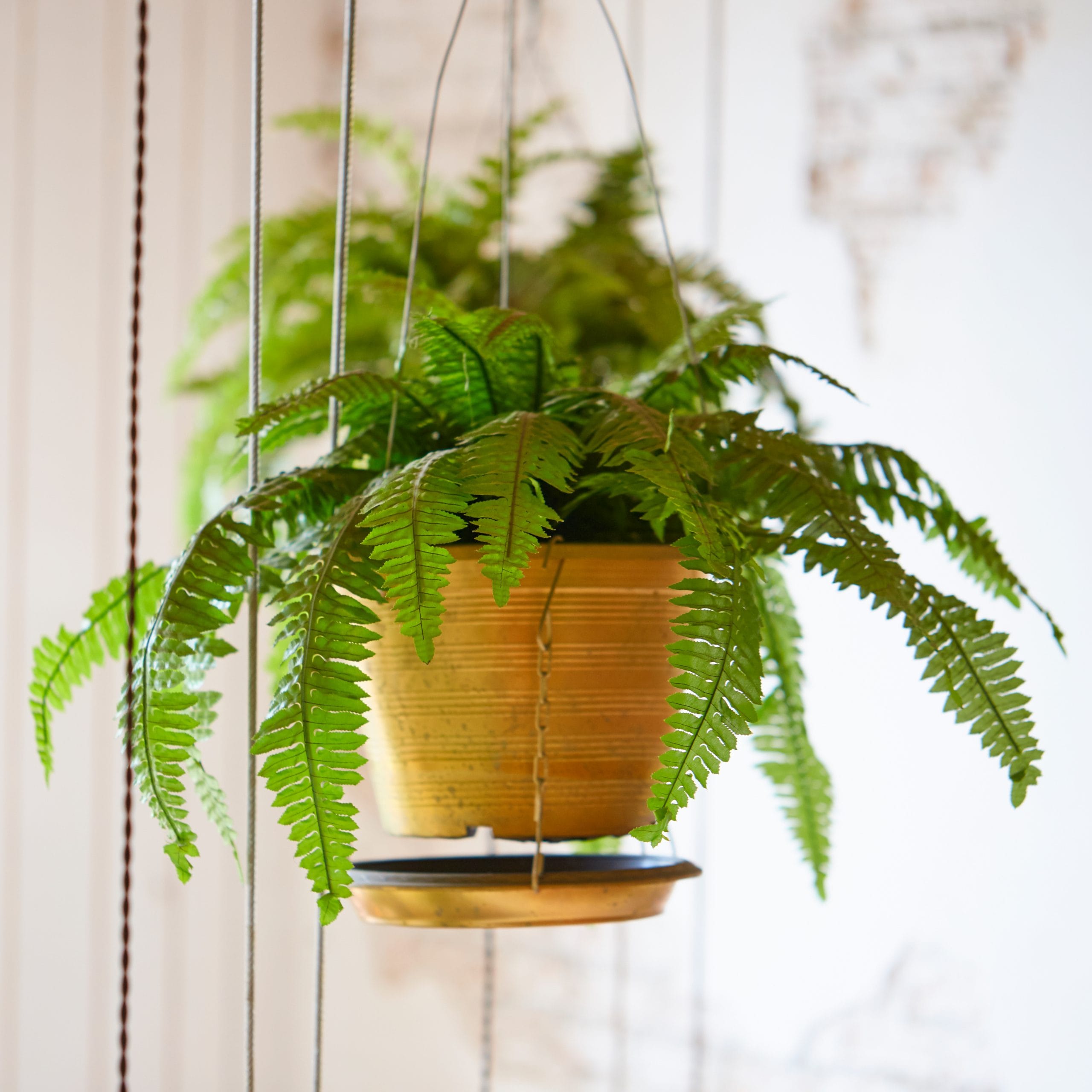
The Boston fern, or Nephrolepis exaltata, is a lush, low-maintenance plant that enjoys frequent misting and indirect light. This pet-safe plant’s love of humidity and air-purifying qualities make it the perfect addition to the bathroom or a shady porch where your dog and cat enjoy a bit of the outdoors.
It might make you happy to learn that along with the Boston fern, almost all ferns are safe for dogs and cats. However, they have to be true ferns, cautions Megan McConnell, plant information director for Monrovia. For example, asparagus fern is not actually a fern and it’s toxic.
If you’re in need of a plant to improve air quality but your space is short on sunlight, McConnell says that most ferns do well in low light. The Boston fern is a pet-friendly plant that can thrive in an area that doesn’t even get indirect sunlight.
Areca Palm
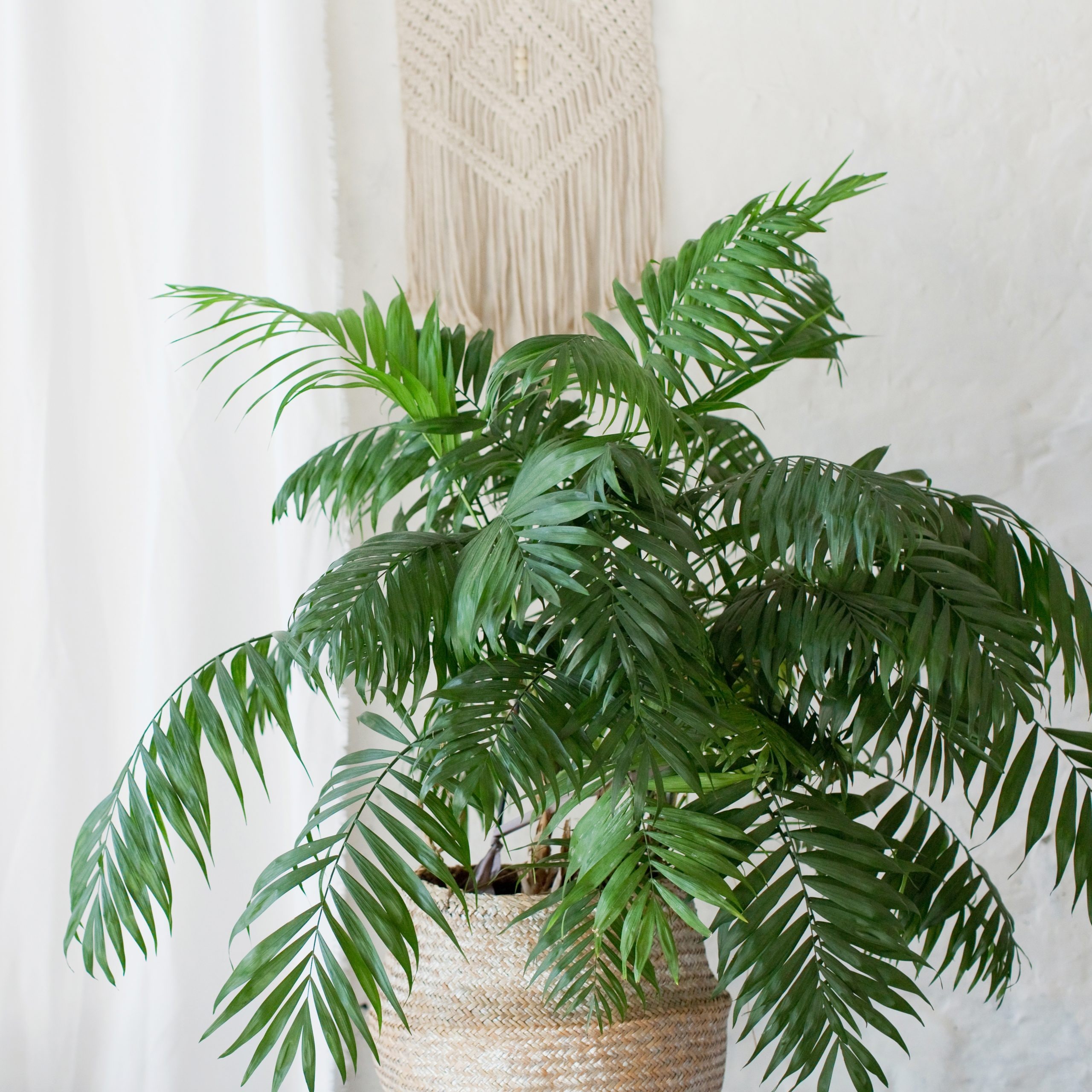
Also known as golden butterfly palm, cane palm, golden feather palm, and yellow palm, McConnell notes this air-purifying plant is entirely pet-friendly.
It helps clear formaldehyde, xylene and toluene from the air and it looks pretty cool while doing it!
You could place one in the part of a room where your pet’s bed is kept to provide a nature-inspired snooze spot.
Money Tree
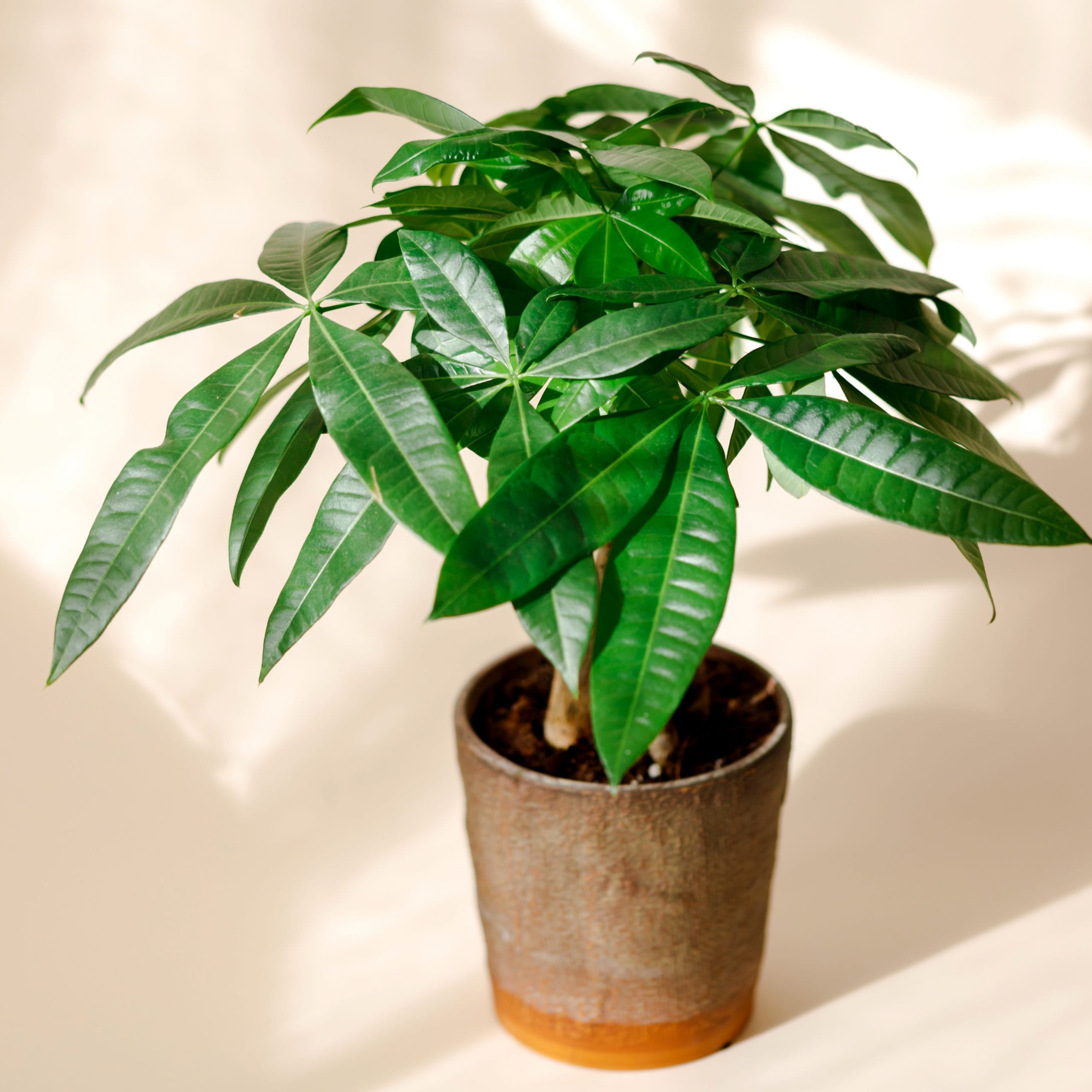
The ASPCA lists the money tree, also known as the money plant, as non-toxic to both dogs and cats. While it unfortunately doesn’t grow actual money, it is good for purifying the air in your abode and the tree’s cool aesthetic adds to your home decor.
Because it prefers bright, indirect sunlight, it’s best to place it close to a window, but not directly in front of one. Perhaps it can be placed next to your pet’s favorite couch.
The money plant is said to bring good luck, and what dog or cat can’t use a little of that?
Gerbera Daisies
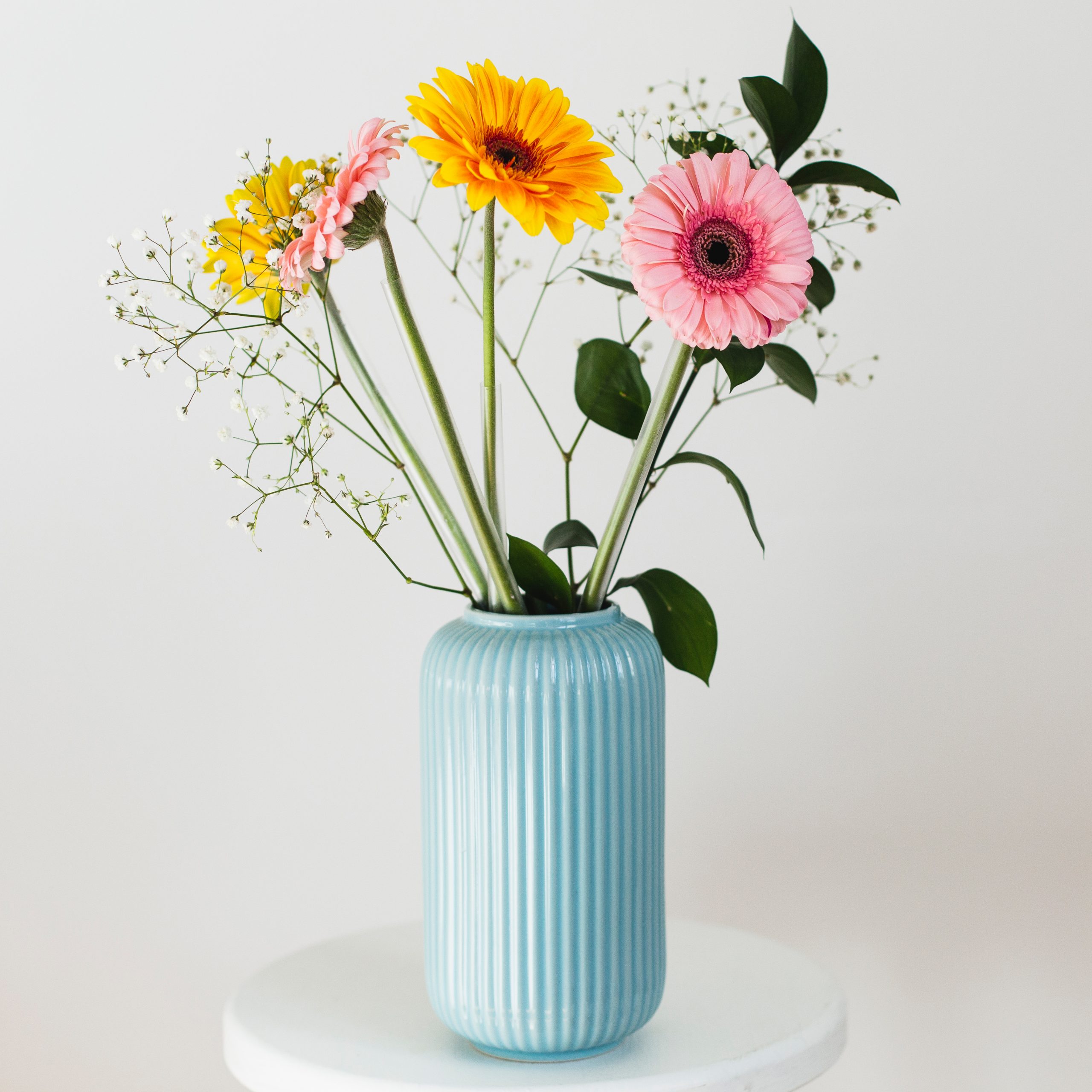
Bright and cheery, gerbera daisies—or Gerbera jamesonii, as they're officially called—are not only air-purifying plants, but Dr. Dimcock says they also are safe for pets. Plus, they produce beautiful, long-lasting flowers.
The lifespan of a gerbera daisy plant kept indoors tends to max out at three years, according to McConnell.
Orchids
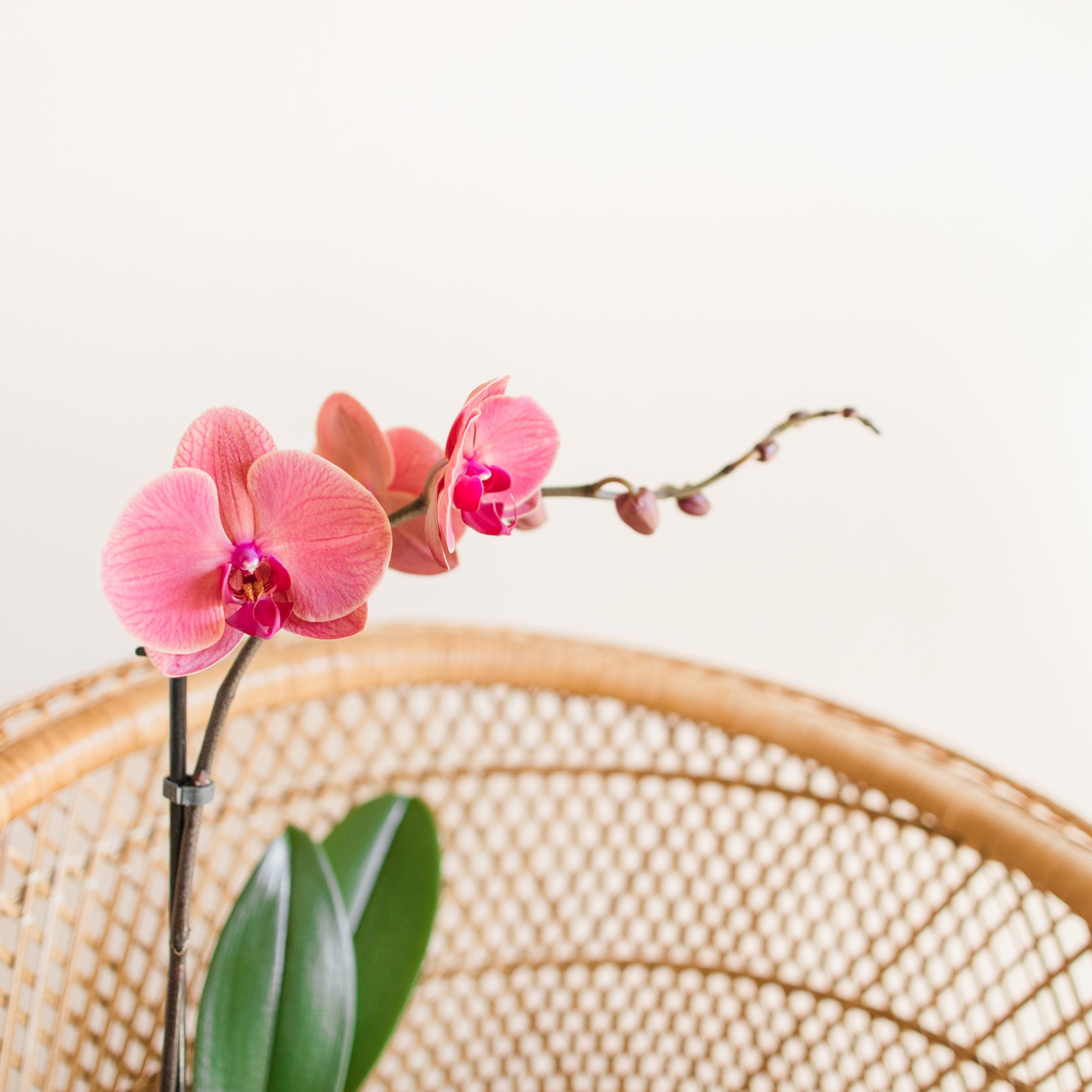
Orchids are definitely safe for our feline and canine friends and they help purify the air. However, McConnell notes that “most people have a hard time getting orchids to bloom again after they first get them.
So, if you’re looking for a plant that has staying power and isn’t too high maintenance, you may want to try something else. (They sure are pretty, though!)
Many Different Succulents
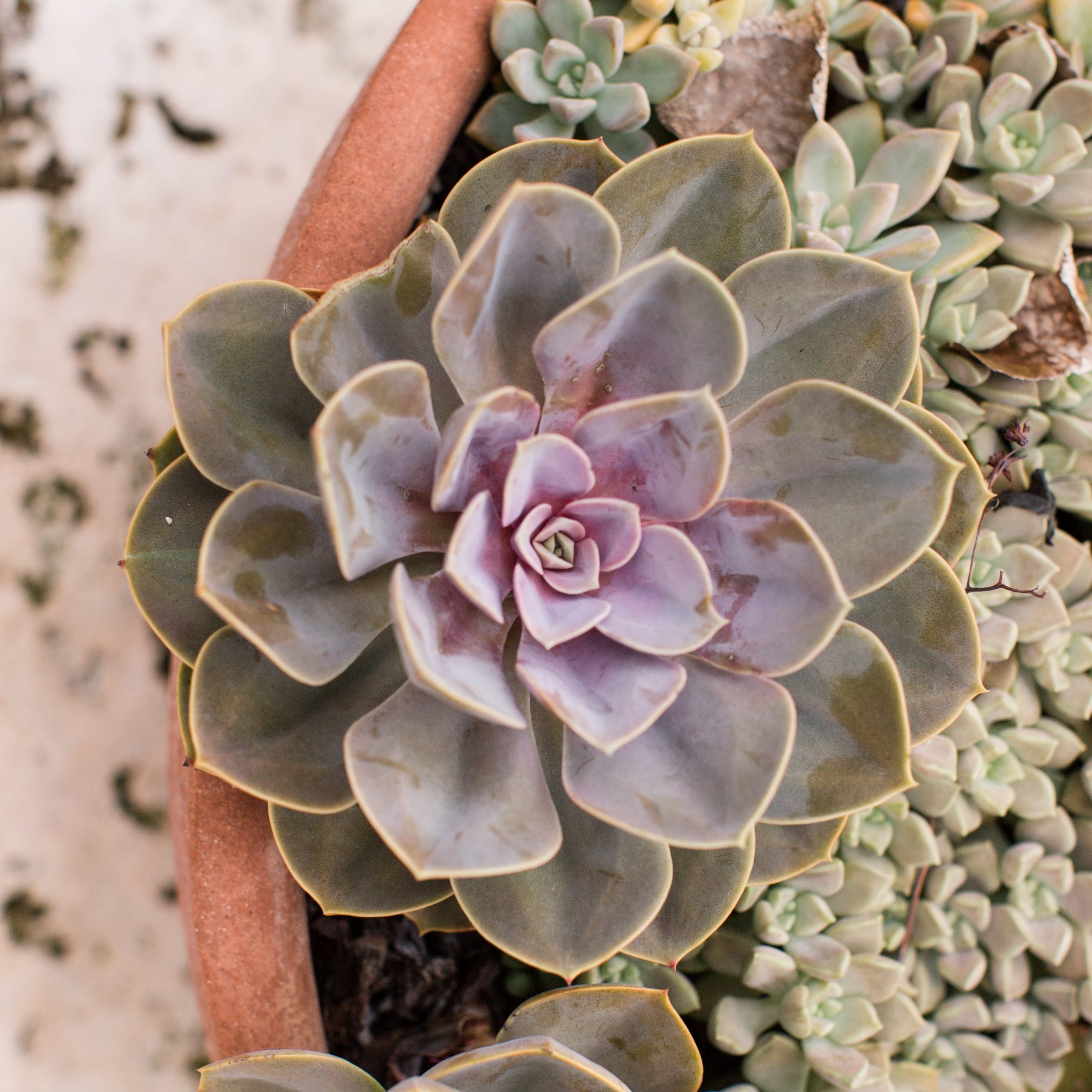
Succulents can help improve your air quality and most are safe for dogs and cats, including Echeveria and Haworthia.
Do note, though, that aloe plants are toxic to pets.
Of course, what makes succulents such an attractive option is they're generally much easier to keep alive (for those of us whose green thumb doesn’t shine too bright).
Place a small non-toxic succulent garden in your cat’s favorite windowsill. Just be sure to leave enough room for your feline!
Air-Purifying Plants to Avoid If You Have Pets
There are other air-purifying plants that do a good job of cleaning the air, but aren’t pet-friendly. Dogs and cats can experience anything from mild illness to death, depending on the plant.
The list includes:
- Snake plants
- Rubber plants
- Weeping figs
- English ivy
- Jade
- Philodendrons
- Pothos plants
- Aloe vera
- Sago palm
- Oleander
- Dracaena
- Peace lily (toxic to cats only)
Can Indoor Plants Really Help Purify the Air?
Plants, along with proper air circulation, can help remove chemical contaminants such as benzene, formaldehyde and trichloroethylene, which are found in synthetic building materials. They also can help relieve burning eyes, breathing difficulties and associated symptoms.
Here’s how it works: Plants give off water vapor, which functions like a sort-of pump to pull the contaminants down into the roots where they are made into food for the plant, a NASA study states.
When we think of breathing clean air, we don’t always consider the existence of indoor air pollution, but it’s definitely a thing. Adding some live foliage that won’t pose a danger to your dog or cat and adds to the visual value of your space is a win.
In addition to plants, you can try air purifiers to help capture pet fur, dander, and airborne particles
Air-purifying plants are a natural and beautiful way to help remove contaminants from the home you and your pet share. Reap all of the benefits by opting for those that are safe and avoid plants that are toxic to cats and dogs. Once you’ve greened up your home, you can take additional steps to create a happy and healthy home with pets.
Expert input provided by Angelica Dimock, DVM, a veterinarian at Animal Humane Society in St. Paul, Minnesota; and Megan McConnell, plant information director for Monrovia. Additional reporting by Laura Willard.
More on plants and pets:
Share:
